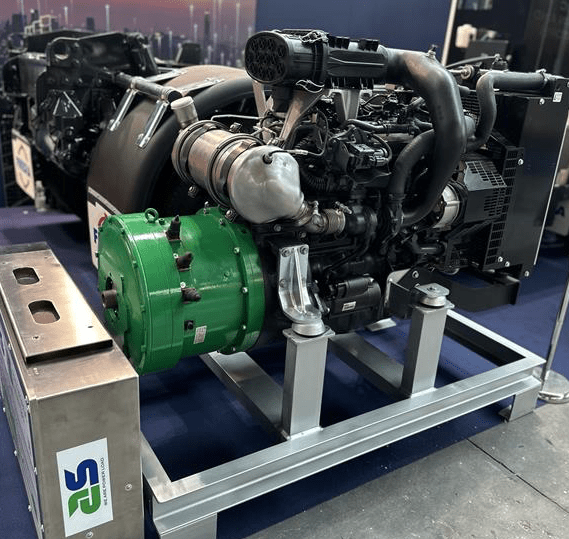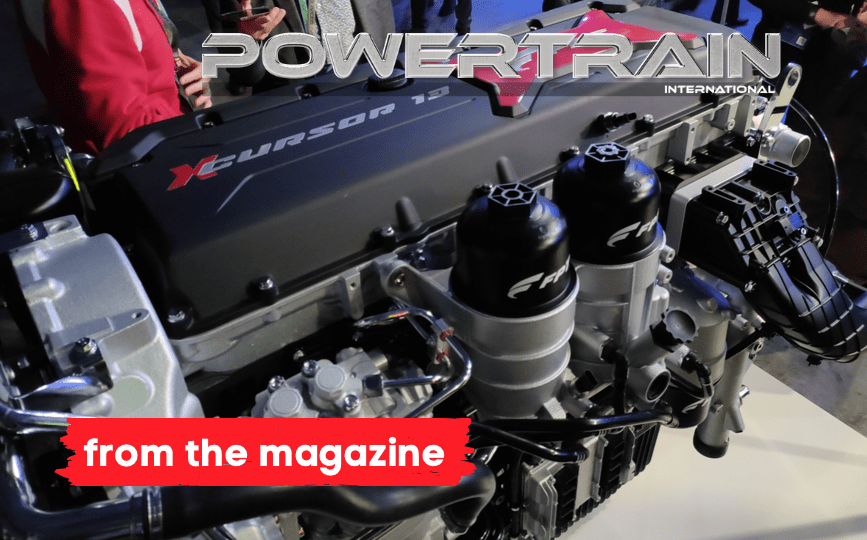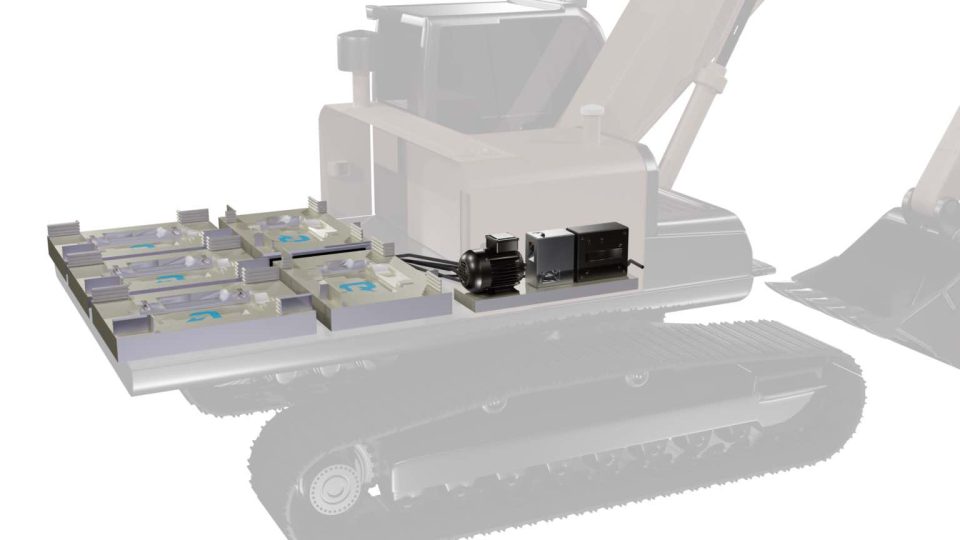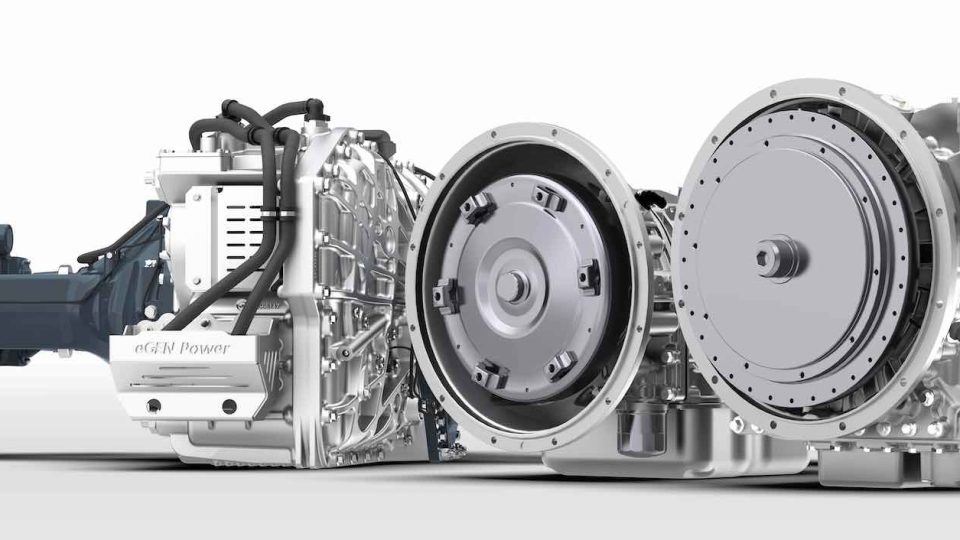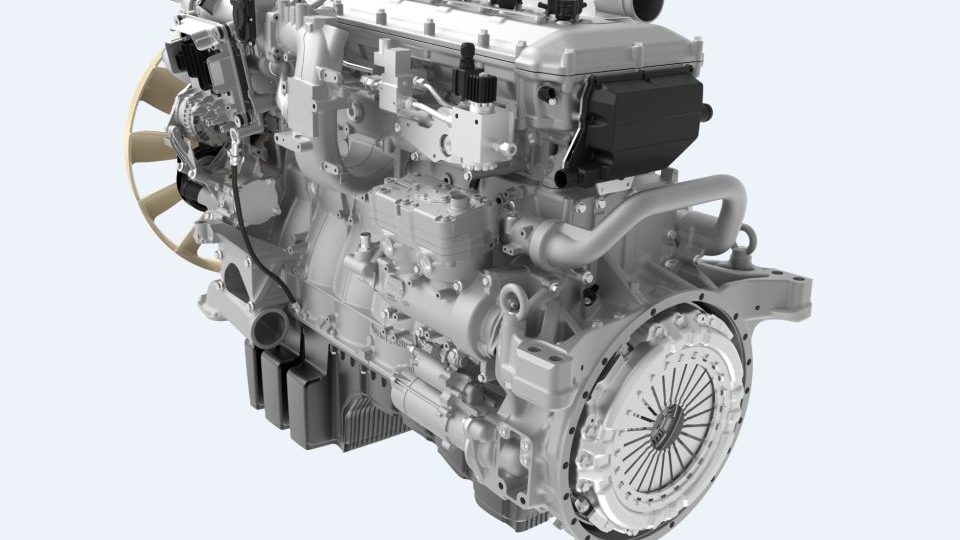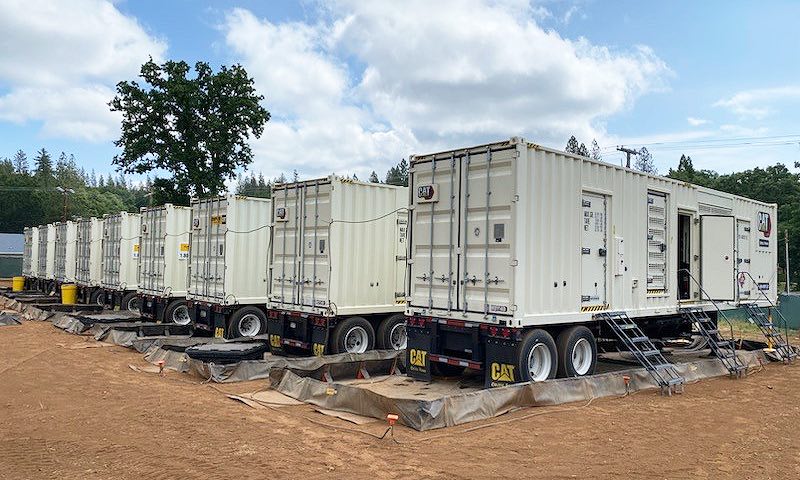Mobility Innovation Tour
Milan hosts the Mobility Innovation Tour The inauguration of the Mobility Innovation Tour took place within the series of events of the Digital Week in Milan. The location was the futuristic headquarters of Microsoft Italy, at Porta Volta. Here, the conference “Revolution 4.0 and electromobility in the tpl” happened. It is the starting point of the […]
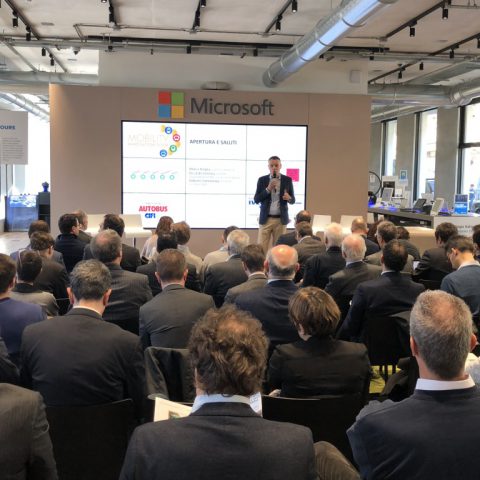
Milan hosts the Mobility Innovation Tour
The inauguration of the Mobility Innovation Tour took place within the series of events of the Digital Week in Milan. The location was the futuristic headquarters of Microsoft Italy, at Porta Volta. Here, the conference “Revolution 4.0 and electromobility in the tpl” happened. It is the starting point of the itinerary of events organized by both the magazine Autobus and Cifi.
The Italian Exhibition Group supported the initiative, with the contribution of the University of Genoa, Scania and the partnership of Iveco Bus. The common objective was to think about the intertwining of public transport and innovation and to explore best practices and possible scenarios. Among the various topics, interesting aspects of the comparison between traditional, natural gas and electric power supply units led the discussion.
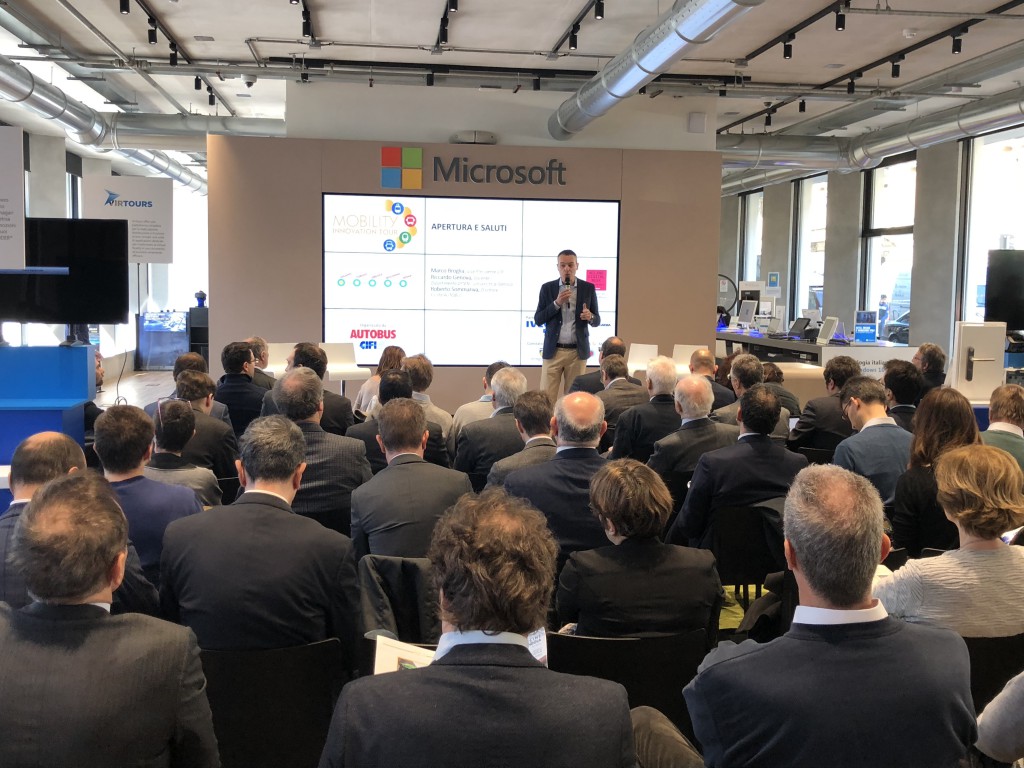
Diesel strikes back
The progress made by diesel engines in terms of reducing emissions has been at the center of the intervention of Eni’s representative, Paolo Fiaschi. Fiaschi recalled that the diesel cycle is the most efficient one among endothermic systems. A first point that has emerged concerns new technologies for diesel engines and the improvements these can provide. Specifically, for example, the production of emissions of a diesel equipped with Dpf is well below the Euro 6 limits. In fact, the number of particles is 99% lower than a traditional diesel. In terms of performance, however, the results are comparable, if not even better, than those of a natural gas engine.
Electricity? Not that soon
Talking about CO2 production over the entire life cycle of a vehicle, internal combustion behaves better than the electric. CO2 levels reach only the half of those produced by electric vehicles. Furthermore, there is still room for improvement. In particular, in terms of the number of particles, that determine the particulate volume.
Fiaschi also underlined that we should take into consideration the entire life cycle of the vehicle to assess the environmental sustainability of the electric vehicle. In the case of the electric, we should evaluate both the environmental costs from the construction of the batteries, as well as those related to disposal and recycling. Without forgetting that alternative sources would not be sufficient to provide sufficient energy today in case of a shift to electricity. Only in countries like France, where the production of electricity from conventional sources is minimal due to the presence of nuclear power, electric powered today is truly sustainable.
Power density is the other factor that limits the penetration of electric vehicles on the markets. In other words, shifting to electric solutions depends strongly on the technologies behind the life cycle of the batteries. Therefore, for Eni, today electricity cannot represent a reliable and total solution.
LNG and biodiesel
In this regard, the company’s efforts point at the LNG, and biofuels as possible alternatives. This is important because, in the first case, liquid methane fuel is obtained from gas. Significant in this sense was the experiment conducted in Turin. Here, in fact, 650 diesel-powered buses were powered by Eni Diesel Plus. This fuel has low aromatic contents and a part of diesel of vegetable origin. In fact, it has allowed a reduction in emissions, albeit with slightly higher costs.
Mobility Innovation Tour will stop just in Turin, the city of FIAT, CNH Industrial and then Fpt Industrial, on 25 May. Appointment in the Kyoto room of the Environment Park.

